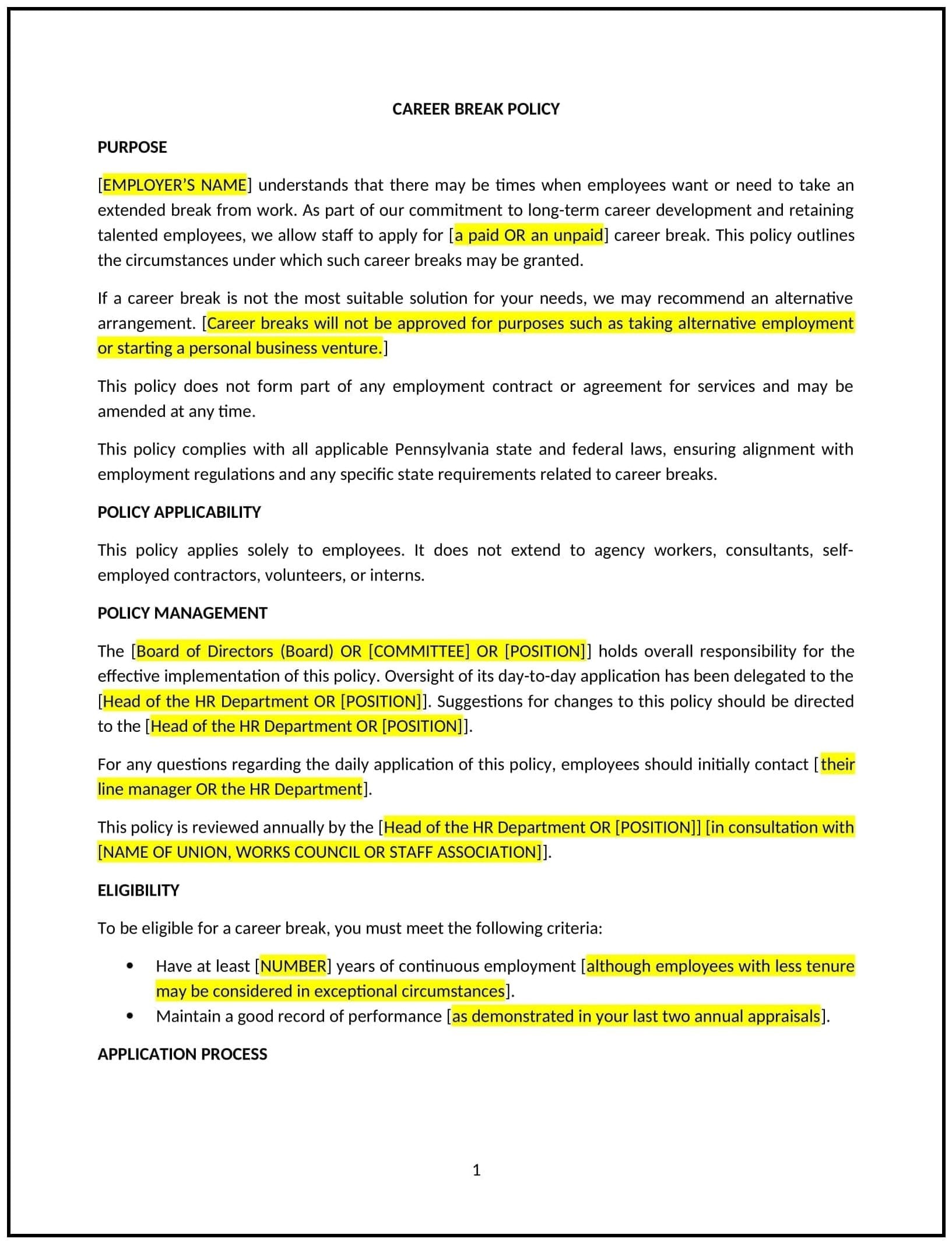Got contracts to review? While you're here for policies, let Cobrief make contract review effortless—start your free review now.

Customize this template for free
Career break policy (Pennsylvania)
This career break policy is designed to help businesses in Pennsylvania offer employees an extended, unpaid leave of absence for personal or professional reasons, such as pursuing education, volunteering, or managing personal commitments. Whether addressing requests from employees in specific industries or aligning with workforce retention strategies, this template provides clear guidelines for managing career breaks.
By using this template, businesses can promote flexibility, support employee well-being, and maintain workplace continuity while tailoring practices to Pennsylvania’s unique workforce dynamics.
How to use this career break policy (Pennsylvania)
- Define eligibility: Clearly state which employees qualify for a career break, such as those with a minimum tenure or in specific roles.
- Establish application procedures: Include steps for requesting a career break, such as submitting a written request, outlining the reason for the break, and proposed return dates.
- Outline duration limits: Specify the minimum and maximum length of a career break, ensuring flexibility while maintaining workplace continuity.
- Clarify re-entry conditions: Provide details on how employees will return to their roles or comparable positions after the break.
- Reflect Pennsylvania-specific considerations: Tailor the policy to meet local workforce needs, addressing challenges like retaining talent in competitive industries or accommodating seasonal fluctuations.
Benefits of using a career break policy (Pennsylvania)
A well-structured career break policy supports employee retention and workforce flexibility. Here's how it helps:
- Enhances employee satisfaction: Demonstrates support for employees’ personal and professional growth through flexible leave options.
- Promotes retention: Encourages employees to stay with the organization by providing options for long-term career planning.
- Maintains workplace clarity: Establishes clear expectations and processes for managing career breaks, reducing misunderstandings.
- Supports workforce planning: Provides a structured approach to managing absences without disrupting workplace operations.
- Reflects Pennsylvania-specific needs: Addresses local industry trends, such as seasonal employment or high-demand professions requiring flexibility.
Tips for using a career break policy (Pennsylvania)
- Communicate the policy: Share the policy with employees during onboarding or career planning discussions to ensure awareness and clarity.
- Plan for absences: Work with employees and managers to prepare for temporary role adjustments or reassignments during career breaks.
- Maintain flexibility: Allow employees to propose customized career break durations, provided they align with business needs.
- Provide re-entry support: Offer resources, such as reorientation or training, to help employees transition back into their roles smoothly.
- Review periodically: Update the policy to reflect changes in Pennsylvania labor laws, workforce trends, or organizational strategies.